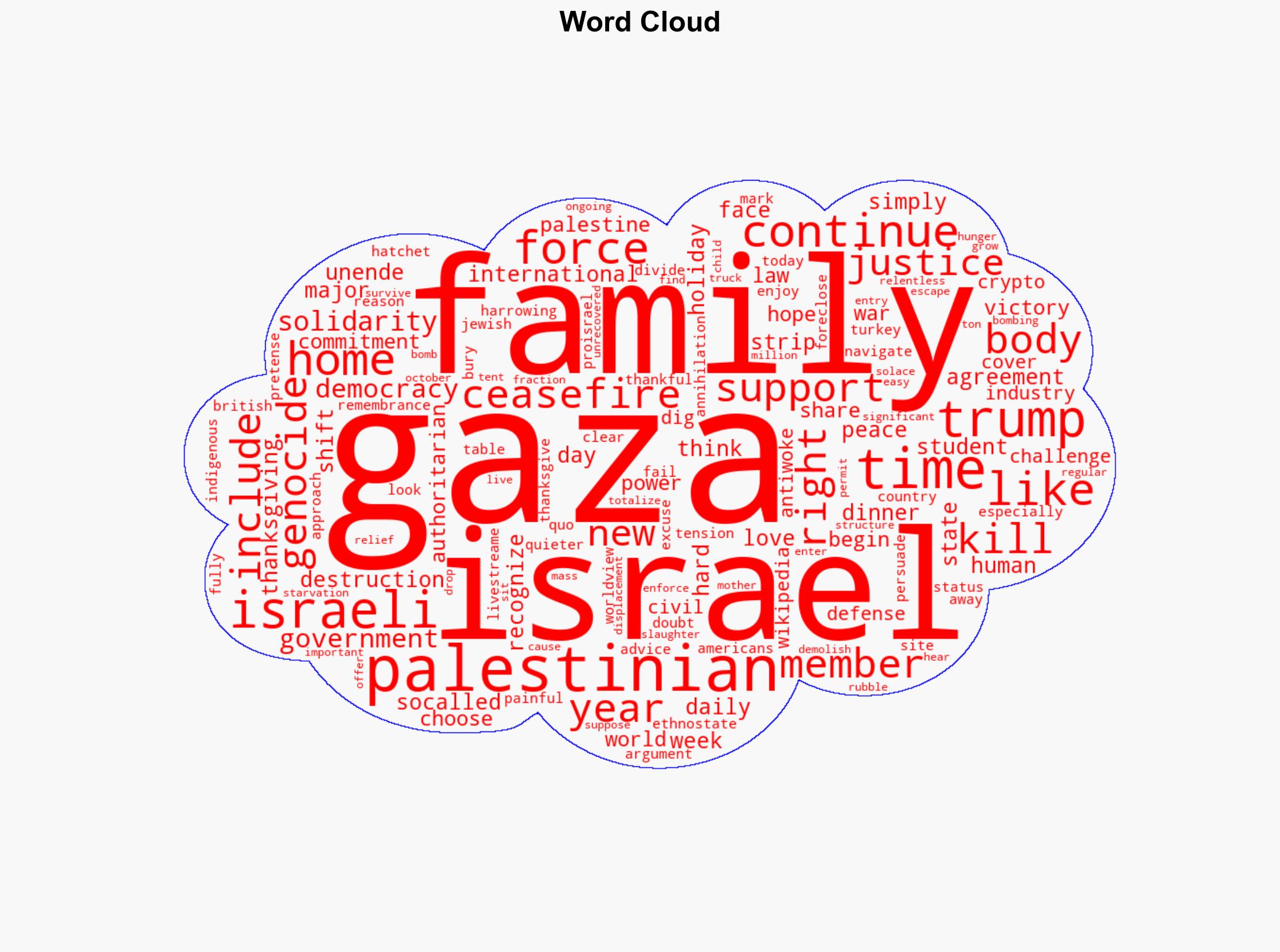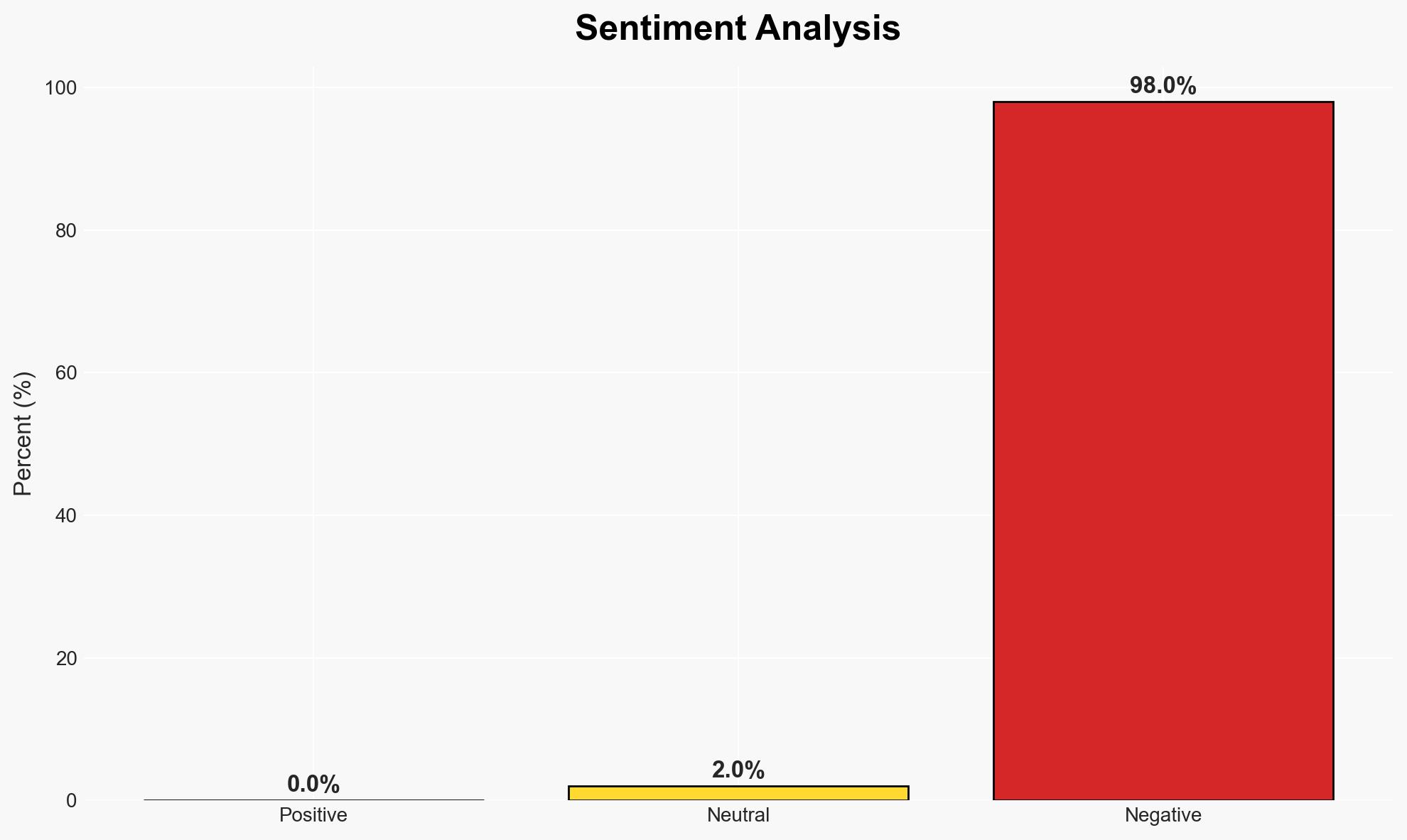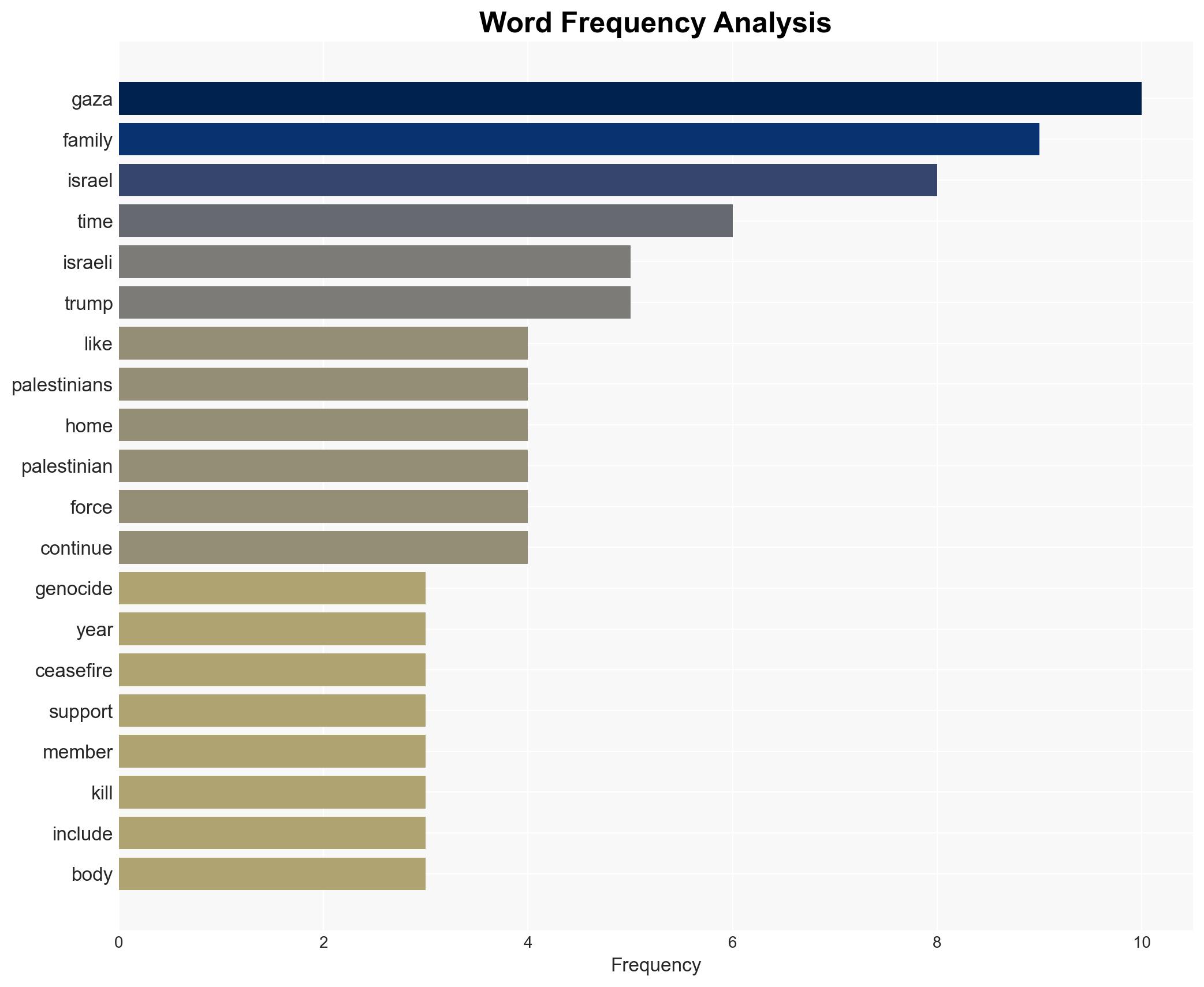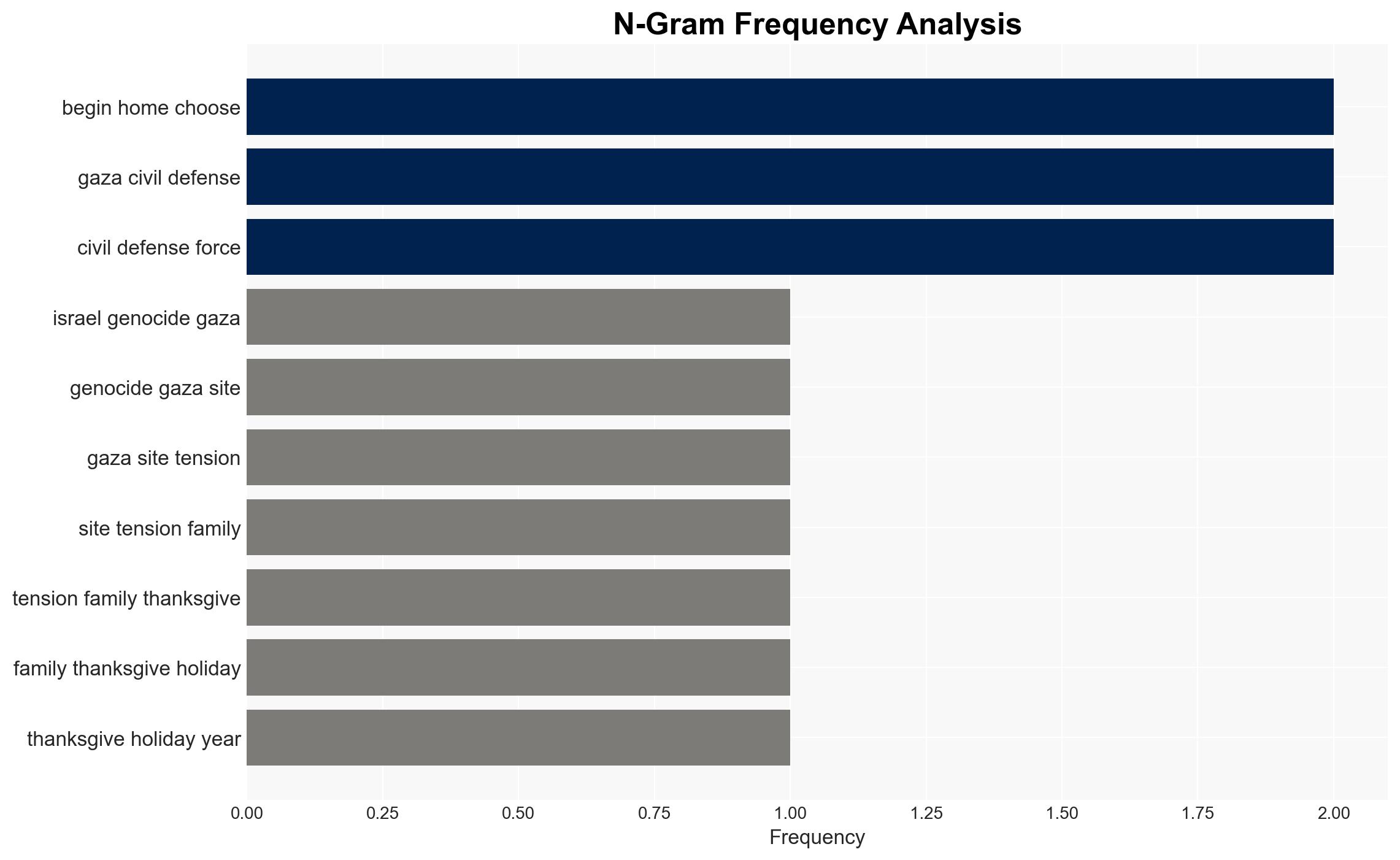Discussing Gaza’s Crisis at Thanksgiving: Navigating Family Conversations Amid Ongoing Conflict
Published on: 2025-11-27
AI-powered OSINT brief from verified open sources. Automated NLP signal extraction with human verification. See our Methodology and Why WorldWideWatchers.
Intelligence Report: Keep Talking About Gaza at Your Thanksgiving Table
1. BLUF (Bottom Line Up Front)
The ongoing conflict in Gaza, characterized by continued Israeli military actions and significant humanitarian concerns, remains a contentious issue with international implications. The discourse around these events is polarized, impacting both domestic and international perceptions and policies. The most likely hypothesis is that international pressure will increase, but substantive changes in the situation on the ground are unlikely in the short term. Overall confidence in this judgment is moderate.
2. Competing Hypotheses
- Hypothesis A: International pressure and recognition of Palestinian statehood will lead to a de-escalation of violence in Gaza. This is supported by growing international recognition of Israel’s actions as genocidal and movements by countries like France, Canada, and Britain. However, the lack of concrete consequences from these recognitions and the continued military actions by Israel contradict this hypothesis.
- Hypothesis B: Despite international criticism, Israeli military operations in Gaza will continue unabated due to geopolitical interests and security concerns. This is supported by the ongoing military actions and the lack of accountability for Israeli leaders. The hypothesis is contradicted by increasing global advocacy for Palestinian rights, which could eventually alter the status quo.
- Assessment: Hypothesis B is currently better supported due to the persistent nature of Israeli military actions and the limited impact of international recognitions on the ground. Key indicators that could shift this judgment include significant international diplomatic interventions or changes in Israeli domestic politics.
3. Key Assumptions and Red Flags
- Assumptions: The international community’s recognition of Palestinian statehood will not immediately translate into policy changes; Israel’s security concerns will continue to drive its military actions; domestic political dynamics in Israel remain unchanged.
- Information Gaps: Detailed data on the internal decision-making processes within the Israeli government and military; insights into the effectiveness of international diplomatic efforts.
- Bias & Deception Risks: Potential bias in international media coverage; manipulation of narratives by both Israeli and Palestinian actors to gain international sympathy or support.
4. Implications and Strategic Risks
The ongoing situation in Gaza could exacerbate regional tensions and influence global diplomatic relations. The conflict may also impact international human rights discourse and policy-making.
- Political / Geopolitical: Potential for increased diplomatic friction between Israel and countries recognizing Palestinian statehood; possible shifts in alliances in the Middle East.
- Security / Counter-Terrorism: Continued violence may lead to radicalization and recruitment by extremist groups, increasing regional instability.
- Cyber / Information Space: Heightened cyber operations targeting both Israeli and Palestinian entities; increased misinformation campaigns in the digital space.
- Economic / Social: Prolonged conflict could lead to further economic degradation in Gaza and increased humanitarian aid requirements; social unrest in countries with significant Palestinian or pro-Israel populations.
5. Recommendations and Outlook
- Immediate Actions (0–30 days): Enhance monitoring of the situation through OSINT and diplomatic channels; engage in dialogue with international partners to coordinate responses.
- Medium-Term Posture (1–12 months): Develop resilience measures for potential cyber threats; strengthen partnerships with regional allies to mitigate security risks.
- Scenario Outlook: Best: Diplomatic breakthroughs lead to a ceasefire and humanitarian relief. Worst: Escalation of violence triggers broader regional conflict. Most-Likely: Continued status quo with intermittent violence and international diplomatic efforts.
6. Key Individuals and Entities
- Not clearly identifiable from open sources in this snippet.
7. Thematic Tags
Regional Focus, Gaza conflict, international diplomacy, human rights, military operations, geopolitical tensions, cyber operations, humanitarian crisis
Structured Analytic Techniques Applied
- Causal Layered Analysis (CLA): Empirical → systemic → worldview → myth layers.
- Cross-Impact Simulation: Model ripple effects across neighboring states, conflicts, or economic dependencies.
- Scenario Generation: Explore divergent futures under varying assumptions to identify plausible paths.
Explore more:
Regional Focus Briefs ·
Daily Summary ·
Support us





